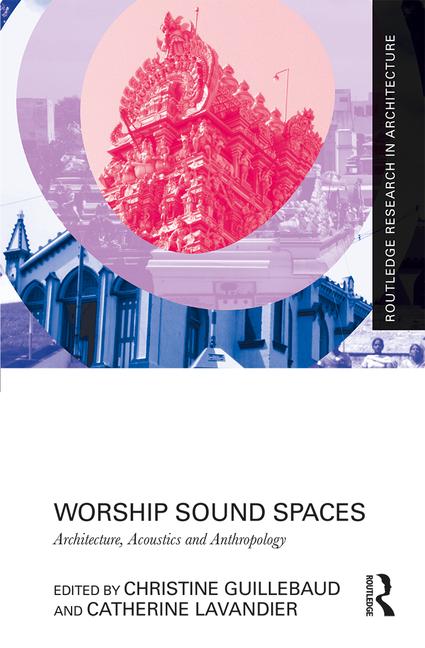NEW RELEASE!
 WORSHIP SOUND SPACES|Architecture, Acoustics and Anthropology
WORSHIP SOUND SPACES|Architecture, Acoustics and Anthropology
Edited by Christine Guillebaud and Catherine Lavandier
-
Description
Worship Sound Spaces unites specialists from architecture, acoustic engineering and the social sciences to encourage closer analysis of the sound environments within places of worship. Gathering a wide range of case studies set in Europe, Asia, North America, the Middle East and Africa, the book presents investigations into Muslim, Christian and Hindu spaces. These diverse cultural contexts demonstrate the composite nature of designing and experiencing places of worship. Beginning with a historical overview of the three primary indicators in acoustic design of religious buildings, reverberation, intelligibility and clarity, the second part of this edited collection offers a series of field studies devoted to perception, before moving onto recent examples of restoration of the sound ambiances of former religious buildings. Written for academics and students interested in architecture, cultural heritage, acoustics, sensory studies and sound.
The multimedia documents of this volume may be consulted at the address:
Short link
https://frama.link/WSS
Long link
https://archives.crem-cnrs.fr/archives/collections/CNRSMH_E_2018_003_001
-
Table of Contents
Introduction
Religious Listenings: A multidisciplinary approach. Christine Guillebaud and Catherine Lavandier
PART 1. Sonic architecture: Acoustic intentions in worship buildings
1. Characterizing the acoustics of places of worship: Should we believe in acoustic indicators? Marc Asselineau
2. Towards a history of architectural acoustics using archeological evidence: What recent research on the uses of acoustic pots contributes to understanding of the quest for sound quality in 11th to 17th century churches. Jean-Christophe Valière and Bénédicte Palazzo-Bertholon
3. Temple soundspaces and ancient Hindu ritual texts. Gérard Colas
PART 2. Experiencing the sacred through sound
4. The worldmaking ways of church bells: Three stories about the Cathedral Notre-Dame de Paris. Gaspard Salatko
5. What should the reverberation inside a masjid be? A study exploring the demands of Imams. Ahmed Elkhateeb
6. ‘Soundwalks in Shiva temple’: A situated approach to perceived ambiance. Christine Guillebaud
7. Bells, auspiciousness and the god of music: Reflections on sound in ritual space in Nepalese Hindu traditions. Astrid Zotter
8. Resonant voices and spatial politics: An acoustemology of citizenship in a Muslim neighbourhood of the Kenyan coast. Andrew J. Eisenberg
PART 3. Restoring the sound ambiances of the past
9. The church beyond worship: Experiencing monumental soundspaces in the Roman Catholic churches of Montréal (Québec, Canada). Josée Laplace
10. Sound heterotopia in a Cistercian monastery. Pascal Joanne
11. The original acoustics of the sixteenth-century Mughal heritage of Burhanpur (India). Amit J. Wahurwagh Akshay P. Patil Alpana R. Dongre
Afterword
A world of attunements. Jean-Paul Thibaud